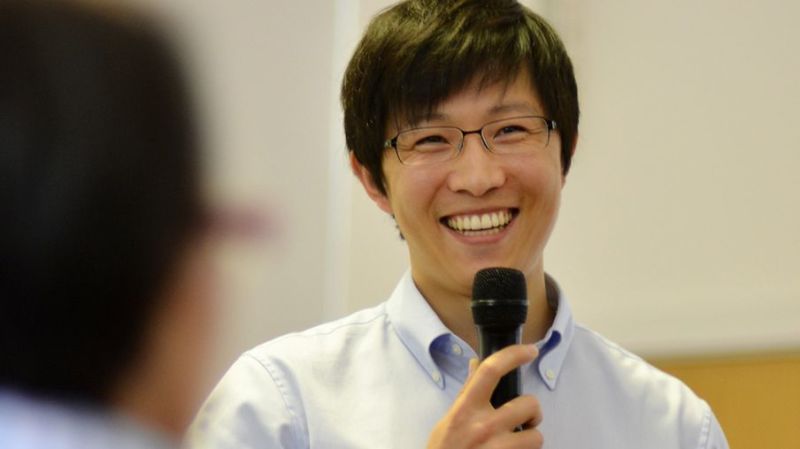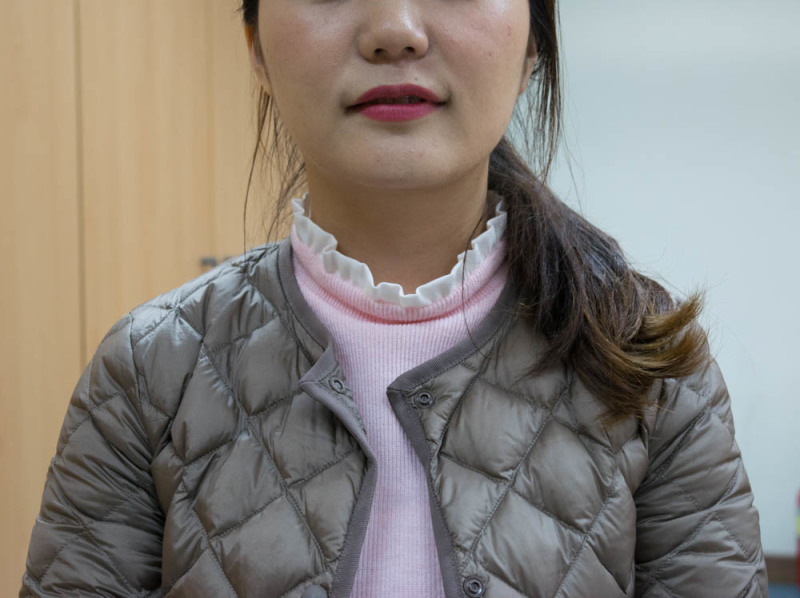

SEOUL, South Korea- At age 12, Sungju Lee survived on the streets of North Korea by scrounging food with street gangs. Nineteen years later, he is living in Seoul, soon to start a doctorate in conflict analysis and resolution at George Mason University in Fairfax, Virginia.
"I found that I could be a bridge between North and South Korea someday, somehow," Lee said.
Lee defected to South Korea in 2003. After converting to Christianity in high school, he pursued undergraduate studies in Korea and a master's degree in the United Kingdom. Lee now works with a humanitarian organization to help North Korean defectors leave China. Lee said he chose the work because his faith has given him empathy for defectors' plights. However, Lee's success is atypical.
Behind a veneer of recent diplomatic cooperation, North and South Korea's populations have grown apart over the six decades since the Korean War ended. Many North Koreans who defect to South Korea have trouble adapting to a vastly different society. For some, conversion to Christianity can help them transition to life outside North Korea's borders. Faith can guide defectors who are finding their lives' purposes, adjusting to South Korean cultural values and making peace with their suffering in North Korea.
"Faith is important for defectors," Lee said. "Faith is the candle on your footstep."
When Lee came to South Korea at age 16, he said he was expelled from South Korean public school for fighting. His inconsistent educational background in North Korea put him at the bottom of the class, and he turned to physical aggression as an outlet.
"Everyone thought that I was stupid because the results of my exams were really bad. I was really good at fighting, and that was the only thing that I could do," Lee said.
Lee passed an exam to graduate from middle school and was invited to attend a Christian mission high school in Busan. He converted to Christianity after one year at the school. Over time, Lee said his faith helped him resolve conflicts without violence.
Defectors can have difficulty grasping religion because its practice is prohibited in North Korea. Instead, the government requires citizens to adhere to the state-sponsored juche ideology instituted in 1972. Jucheemphasizes self-reliance, political and economic isolationism, veneration of the dictator and devotion to the communist state.
Some scholars speculate that juche may have been inspired in part by Christianity, especially because its purported founder, Kim Il Sung, grew up with Christian parents. Lee said he felt surface-level similarities when he started attending church.
"At church, God and the elderly people had power over the normal people, and in North Korea, Kim Il Sung and [the Communist party], who were the elderly, had power over the normal people," Lee said. "The system was similar, and I hated to go to church."
Michael Kim, a 29-year-old who defected to South Korea two years ago, was also skeptical of Christians. He said North Koreans are forced to denounce any "wrong ideas" like religion.
In North Korea, Kim worked in a high-level position in Kim Jong Un's government. But when he feared party officials turned against him, he was forced to leave the country. Kim was despondent for the first few months after defecting. Even two years later, a look of pain flashed across his face as he reminisced about the family and friends he left behind.
"I thought, 'I wasted my life of 27 years. Why did I have to be born in North Korea? Out of six billion people all around the world, why me?'" Kim said.
Kim's depression is common among defectors. Four in ten have depressive symptoms and half report at least mild anxiety, according to a 2011 study of more than 100 defectors living in South Korea. The South Korean government reports thatdefectors' suicide rates are triple those of South Koreans. Many defectors have been traumatized by starvation, extreme poverty, scenes of death, torture, family dissolution, and stretches in refugee camps.
When Kim first met a pastor who offered to pray for him, he said he was suspicious, but the man's persistent kindness won him over. Kim began reading the Bible, going to church and praying. He said his studies changed his outlook.
"I used to shout at the workers and force them to work in North Korea," Kim said. "Now, I am so very happy to get a warm heart when I am reading the Bible."
When defectors first arrive in South Korea, they attend an acculturation center named Hanawon. Defectors are interrogated to ensure they are not spies. Once vetted, they take three months of classes on South Korean culture, capitalist society and job skills. Hanawon also introduces defectors to religion, and offers a choice of weekly Buddhist, Catholic and Protestant gatherings.

Esther Park, a 29-year-old North Korean defector whose name has been changed for security reasons, said she first heard of Christianity at Hanawon. She did not originally choose a Protestant service for any high philosophical or moral ideal. She just liked the music.
"I liked the songs and I liked being with church people because they were friendly and nice, but I had no idea about God," Park said.
Park said that becoming a Christian helped her find meaning in her suffering. Over a period of seven years in China, she said she was deported back to North Korea three times. Park said the experiences were "difficult, miserable and unstable." Confirming her descriptions, a United Nations report stated that repatriated North Koreans were subject to "imprisonment, execution, torture, arbitrary detention, deliberate starvation, illegal cavity searches, forced abortions and other sexual violence."
Park said that her faith has helped her forgive the people who hurt her. She is channeling her motivation to spread Christianity to her homeland into studying North Korean refugee, migration and citizenship issues.

















